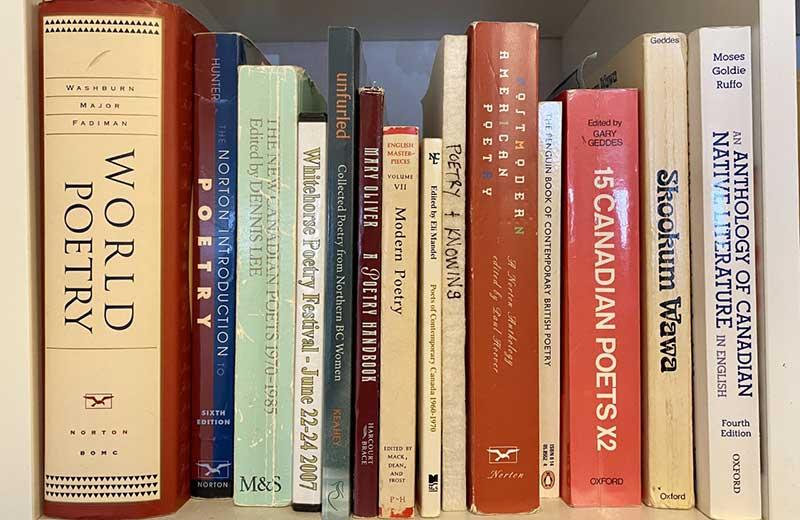National Poetry Month is a reminder that there are plenty of ways the arts intersect with health, and that art, as much as science, can benefit our health. Just as walking every day and eating well are ways to ensure your body stays fit and strong, making art a part of your life, whether by appreciating it or creating it, is a way to ensure your mind and soul are taken care of as well.
Some people are turned off poetry in school when, in English class, they’re asked to decipher “the poet’s intent” like a code. Instead, try approaching a poem as you would a waterfall: come as close as is safe, watch, notice, feel, and then leave. When you read a poem, ask yourself what you noticed, let yourself feel anything that arises, and then carry the images it gave you with you when you walk away. If you liked it, you’ll return.
Some people find solace in writing poetry. Some start writing in high school and never stop, but many people haven’t experienced how writing a poem can help sort through your thoughts and feelings –- turning something into art is a way to separate it from yourself and see it differently. Poetry can be therapeutic, and lots of times it’s also fun!
Poetry for comfort and connection
Not only can poetry soothe the patient, poetry can help doctors as well. A partnership between the Canadian Association for Health Humanities and the League of Canadian Poets has resulted in monthly conversations that weave together healthcare, art, healing and humanities. The combination of health practice and research with artistic expression illuminates new insights and perspectives on healthcare challenges, approaches and advances and helps to “build bridges of connection between health professionals, humanities and the arts.” Poetry gives each of us, patient and provider, an outlet for our thoughts and a means to relate to others, which builds connection between us.
In the New Yorker, the doctor Ofole Mgbako asks a patient, “What gives you purpose as you face your own mortality?” A bold question, and one he’d never asked before. “Poetry,” the patient replies, and their relationship develops over a shared love of verse.
People turn to poetry in times of celebration – at weddings and graduations – but we also turn to poetry for comfort in times of distress. If we’re facing illness or death, when we read poetry, we’re reminded we’re not alone. Poems are places we go to see our humanity reflected back to us, to hear the voices of others as they navigate similar difficulties, or travel new paths.
But poetry is also a tool: writing poetry is a way to understand the world. Poetry can help us find our way out of mental and emotional difficulty. It’s a way to sort out our feelings, to see where we’ve been, and to find where we’re going.
Join in National Poetry Month fun!
This National Poetry Month, consider taking part. You can write a haiku, a sonnet, or even a grocery list! Jot your thoughts down and see how they sound. Visit the League of Canadian Poets website to learn about events like Poem in Your Pocket Day, when you to pick a poem, keep it with you, and share it with others as you go about your day.
For those working in healthcare, consider joining the Cross-Pollinations discussion. Not only will you connect with others combining healthcare and arts, you can earn Mainpro+ credits (continuing professional development) at the same time.
For company on your poetry journey, follow the hashtag #NPM22. To learn about the experiences of those on the front lines of health, read poetry by health care providers in anthologies such as Between the Heartbeats. Or go look at a waterfall: walk and wonder in nature, and then take a minute to write it down.
Happy National Poetry Month! Enjoy this seasonal haiku:
It’s April, wet snow
Freezes in the street. Dogs, birds
And humans wonder














Comments